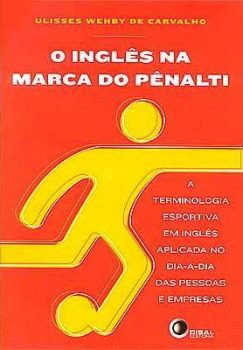Archive for August, 2012
Collocations e expressões com o verbo “to crack” Posted by Adir on Aug 10, 2012
Hello, there! Hoje é sexta-feira e é dia de collocations! Yes! Hoje, além das collocations, também vou apresentar para você algumas expressões idiomáticas com o verbo “to crack”. To crack significa basicamente “quebrar”, “rachar”, “trincar”. Veja alguns exemplos: Don’t put boiling water in the glass or it will crack. [Não coloque água fervendo no copo…
Como usar a palavra “too” Posted by Adir on Aug 9, 2012
Hello, there! How’s it going? A palavra too é muito comum em inglês. Lá no início do seu curso, você deve ter aprendido que ela significa “também” e é usada no final da frase, não é? I speak English and she speaks English too! [Eu falo inglês e ela fala inglês também.] Do you want…
How to really brainstorm in meetings Posted by Adir on Aug 8, 2012
Hello, there! I’ve been reading a book. “A Whole New Mind – Why right-brainers will rule the future”, by Daniel H. Pink and in one of its chapters it describes that lengthy and oftentime fruitless brainstorm sessions that we have all been part of at work. Pink says that effective brainstorming sessions aren’t random and…
Phrasal verb: turn out Posted by Adir on Aug 7, 2012
Today is our first Tuesday in August and our post today is again about phrasal verbs. This time it’s a very, but very common phrasal verb: to turn out. As you may expect, this phrasal verb has several meaning and oftentimes it’s not very easy to know when to use one or the other, so…
Como dizer “arrebentar a boca do balão” em inglês Posted by Adir on Aug 6, 2012
O amigo Ulisses Wehby de Carvalho, autor do livro O Inglês na Marca do Pênalti, traz em seu livro uma opção para traduzir a expressão arrebentar a boca do balão em inglês: to pitch a no-hitter. To pitch a no-hitter signfica ter desempenho impecável ou extraordinário; arrebentar (a boca do balão) Essa expressão é usada…
Como usar “specially” e “especially” Posted by Adir on Aug 3, 2012
As palavras specially e especially têm a mesma pronúncia, mas são usadas de formas diferentes em inglês. Specially Specially é um advérbio e é traduzido por “especialmente”, com o sentido de algo ser feito para um propósito específico ou somente com essa intenção. They used specially trained police dogs to look for drugs. [Usaram cães…
“Move” é só mover? Posted by Adir on Aug 2, 2012
Bom dia! To move não é somente traduzido como “mover”. Veja algumas outras formas de traduzi-lo. 1. mexer, movimentar, transportar; mudar de lugar; ir, andar Don’t move! – Não se mexa! I can’t move these boxes; they’re too heavy! – Não consigo mudar as caixas de lugar; são muito pesadas. The train had begun to…









